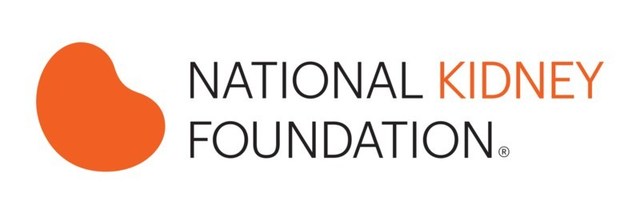|
24.08.2021 15:30:00
|
Update: Reassessing Inclusion of Race in Diagnosing Kidney Diseases
NEW YORK, Aug. 24, 2021 /PRNewswire/ -- The National Kidney Foundation (NKF) and the American Society of Nephrology (ASN) congratulate the NKF-ASN Task Force on Reassessing the Inclusion of Race in Diagnosing Kidney Diseases for submitting its final report for publication.
On behalf of the leadership of NKF and ASN, we are excited for the kidney community—as well as other stakeholders, particularly the medical students, residents, and fellows who have spearheaded the call to action on this important issue—to consider the task force's recommendations for how best to remove race modifiers from the assessment of kidney function. Additionally, we thank each member of the task force for their remarkable effort, thoughtfulness, and cooperation in completing their charge.
By identifying an initial approach that does not incorporate specification of an individual's race, is not based on existing equations, and should be able to be rapidly implemented in all laboratories, the NKF-ASN Task Force has completed its charge to find a race-free approach for estimation of GFR. The task force's final report is currently under review. Once the final report is published and publicly available, we look forward to laboratories, institutions, and other entities adopting this equation to provide a harmonized, race-free estimation of kidney function.
Earlier this year, the task force published "Special Article: Reassessing the Inclusion of Race in Diagnosing Kidney Diseases: An Interim Report from the NKF-ASN Task Force" in the Journal of the American Society of Nephrology (JASN) and the American Journal of Kidney Diseases (AJKD). The interim report provides an essential review of the many challenges relative to identifying and implementing alternative methods for diagnosing kidney diseases.
In addition to the task force's interim report, NKF and ASN set forth the following objectives:
Commending the task force for ensuring its final report aligns with these objectives, NKF and ASN look forward to distributing the final report to the kidney community and other stakeholders as part of a broader implementation strategy. NKF and ASN also encourage the Kidney Disease Outcomes Quality Initiative (KDOQI) and Kidney Disease: Improving Global Outcomes (KDIGO) to develop updated guidelines that ensure a uniform approach consistent with the task force's recommendations.
While the task force efforts represent an important first step in the work of NKF, ASN, and the rest of the kidney community to address racism in nephrology, there is still much more to be done to eliminate racial disparities in kidney health and in the care of persons with kidney diseases.
Kidney Disease Facts
In the United States, 37 million adults are estimated to have chronic kidney disease—and approximately 90 percent don't know they have it. 1 in 3 adults in the U.S. are at risk for chronic kidney disease. Risk factors for kidney disease include: diabetes, high blood pressure, heart disease, obesity, and family history. People of Black or African American, Hispanic or Latino, American Indian or Alaska Native, Asian American, or Native Hawaiian or Other Pacific Islander descent are at increased risk for developing the disease. Blacks or African Americans are almost 4 times more likely than White Americans to have kidney failure. Hispanics are 1.3 times more likely than non-Hispanics to have kidney failure.
Approximately 785,000 Americans have irreversible kidney failure and need dialysis or a kidney transplant to survive. More than 555,000 of these patients receive dialysis to replace kidney function and 230,000 live with a transplant. Nearly 100,000 Americans are on the waitlist for a kidney transplant right now. Depending on where a patient lives, the average wait time for a kidney transplant can be upwards of three to seven years.
About the American Society of Nephrology
ASN leads the fight to prevent, treat, and cure kidney diseases throughout the world by educating health professionals and scientists, advancing research and innovation, communicating new knowledge, and advocating for the highest quality care for patients. ASN has more than 21,000 members representing 131 countries. For more information, please visit www.asn-online.org or contact the society at 202-640-4660.
About the National Kidney Foundation
The National Kidney Foundation (NKF) is the largest, most comprehensive, and longstanding patient-centric organization dedicated to the awareness, prevention, and treatment of kidney diseases in the U.S. For more information visit www.kidney.org.
![]() View original content to download multimedia:https://www.prnewswire.com/news-releases/update-reassessing-inclusion-of-race-in-diagnosing-kidney-diseases-301361384.html
View original content to download multimedia:https://www.prnewswire.com/news-releases/update-reassessing-inclusion-of-race-in-diagnosing-kidney-diseases-301361384.html
SOURCE National Kidney Foundation
 Der finanzen.at Ratgeber für Aktien!
Der finanzen.at Ratgeber für Aktien!
Wenn Sie mehr über das Thema Aktien erfahren wollen, finden Sie in unserem Ratgeber viele interessante Artikel dazu!
Jetzt informieren!
